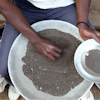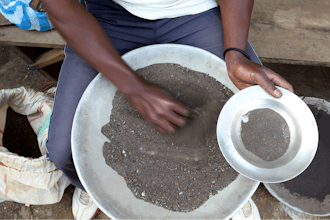PARIS (AP) — Nine European and U.S. consumer products makers, including Unilever, Procter & Gamble and Colgate-Palmolive, are suspected of colluding on prices in France, a report said Wednesday.
If found guilty, the companies could face fines of up to 10 percent of their annual worldwide revenue — possibly amounting to billions of euros (dollars), the daily Le Figaro said.
The suspected collusion is believed to have begun toward the end of 2004, the report said. Other companies said to be suspected include U.S.-based Sara Lee Corp. and S.C. Johnson & Son, Inc., as well as Germany's Henkel KGaA, and Reckitt Benckiser Group PLC, the newspaper said.
It said nine companies in all ''are suspected of having participated in a vast accord on their prices in France.''
Henkel confirmed to The Associated Press that a branch of the French Finance Ministry that fights cartels and unfair business practices is investigating.
A Henkel spokeswoman reached at the company's offices on the Paris outskirts said the probe by the General Directorate for Competition Policy, Consumer Affairs and Fraud Control started in January 2006. The spokeswoman refused to give her name and said the company had no other comment.
Le Figaro said the directorate's agents have carried out raids and that investigations into the affair are almost finished.
Sebastien Mao, a spokesman for the directorate, said he could neither confirm nor deny that it was investigating the company, citing rules requiring that such probes remain secret until they have concluded and the companies have been judged.
Le Figaro said the affair came to light in 2005, when S.C. Johnson decided to come clean to French authorities about the alleged price-collusion — apparently in hopes of avoiding eventual punishment.
The newspaper said Johnson named Colgate-Palmolive Co., Henkel, Sara Lee and others.
According to Le Figaro, Johnson ''said that, since the end of 2004, they had fallen into the habit of telephoning each other very regularly and of holding secret meetings. E-mails were also exchanged'' and market research pooled.
The newspaper said the companies shared information about their market share in cleaning products and insecticides and their prices, as well as commercial information about their distributors.
Le Figaro said following Johnson's supposed ''complete and detailed confession,'' France's Competition Council in 2006 absolved the company of any punishment.
The competition council, set up in 1986, is an independent state body that fights and can punish anticompetitive practices. It said Wednesday morning that its spokespeople were in meetings and not available for immediate comment.
But in a statement titled ''Affair Under Way in the Cleaning Products Sector,'' the council said it has always refused to give out information on its investigations — both to protect its work and the presumption of innocence for implicated firms.
Le Figaro said that Colgate subsequently also confessed to the council about ''another entente'' that it allegedly had with Procter & Gamble and Unilever PLC, on personal hygiene products.
Segolene Moreau, a spokeswoman for Procter & Gamble in France, said the company was ''awaiting the decision of the Competition Council'' but that it had no other comment on the Figaro report.
Associated Press writer Marc Annouchi contributed to this report.






















